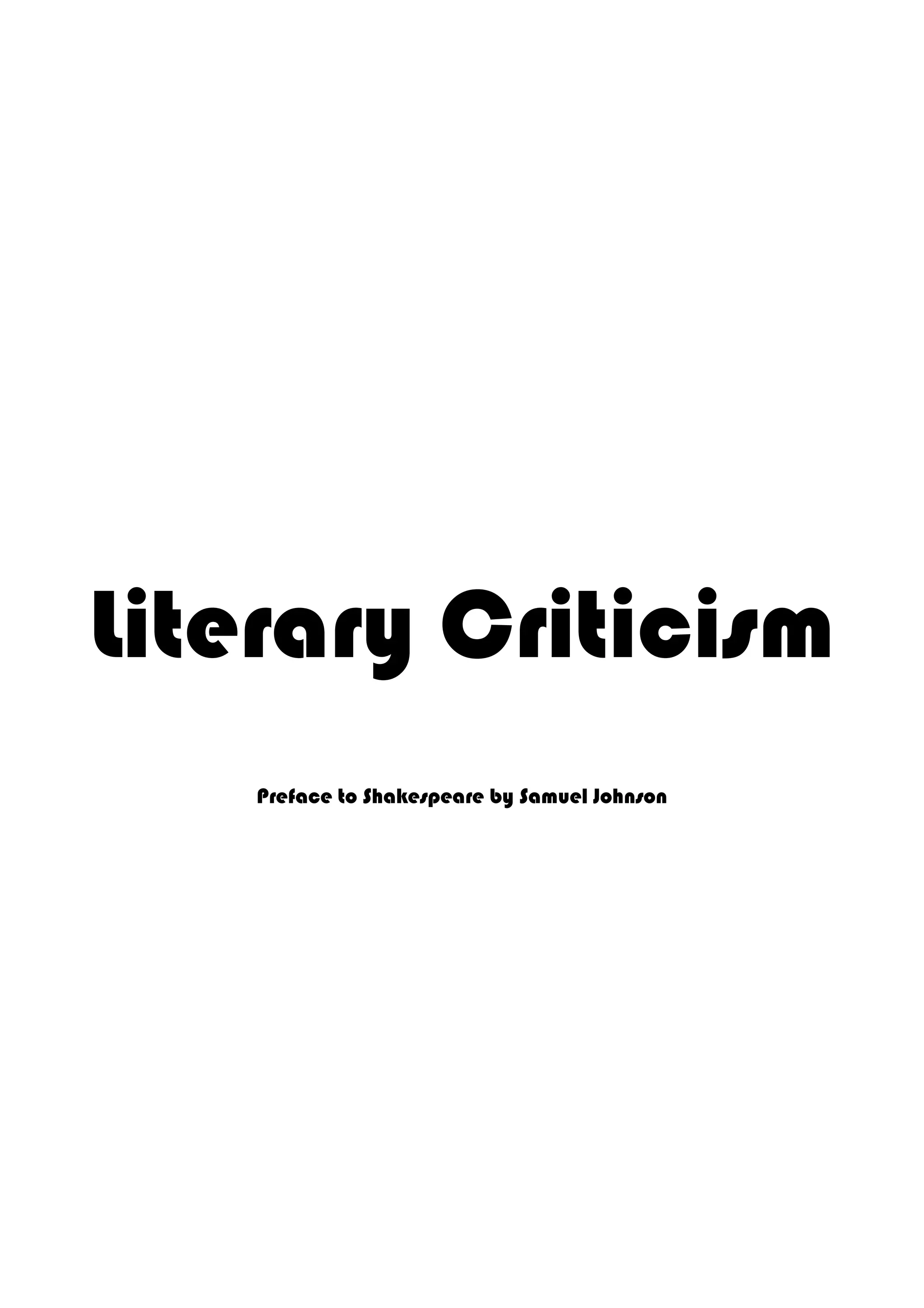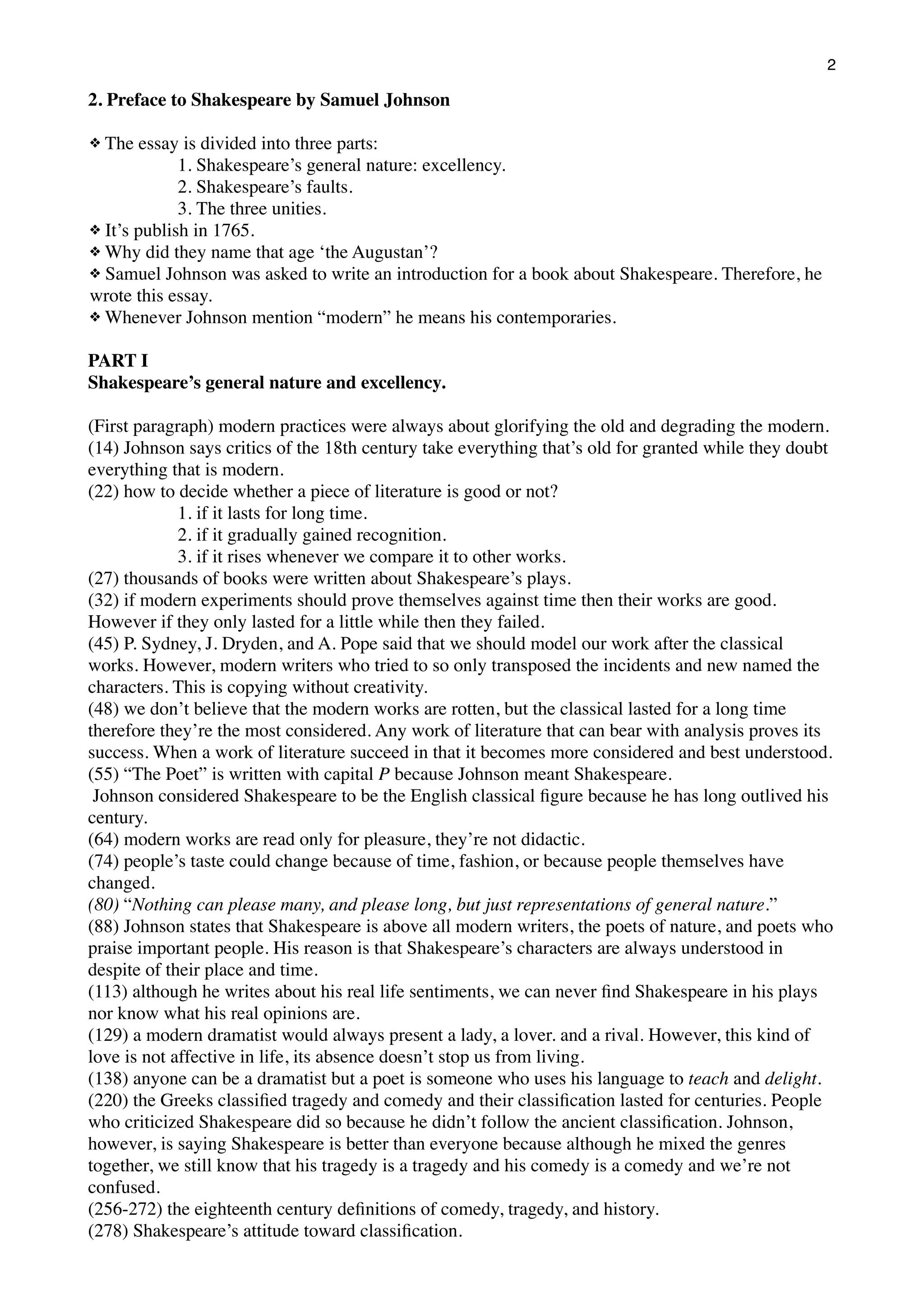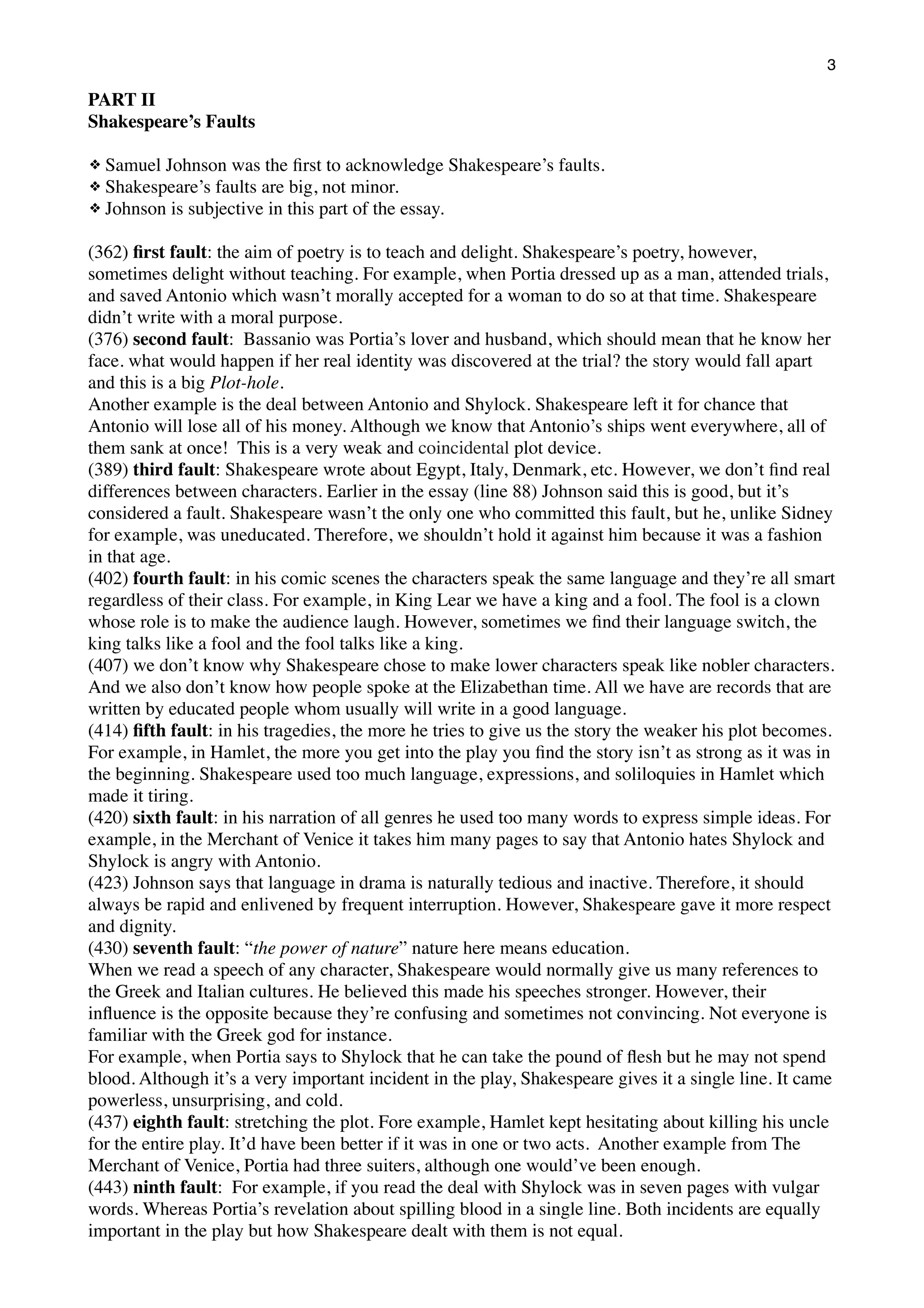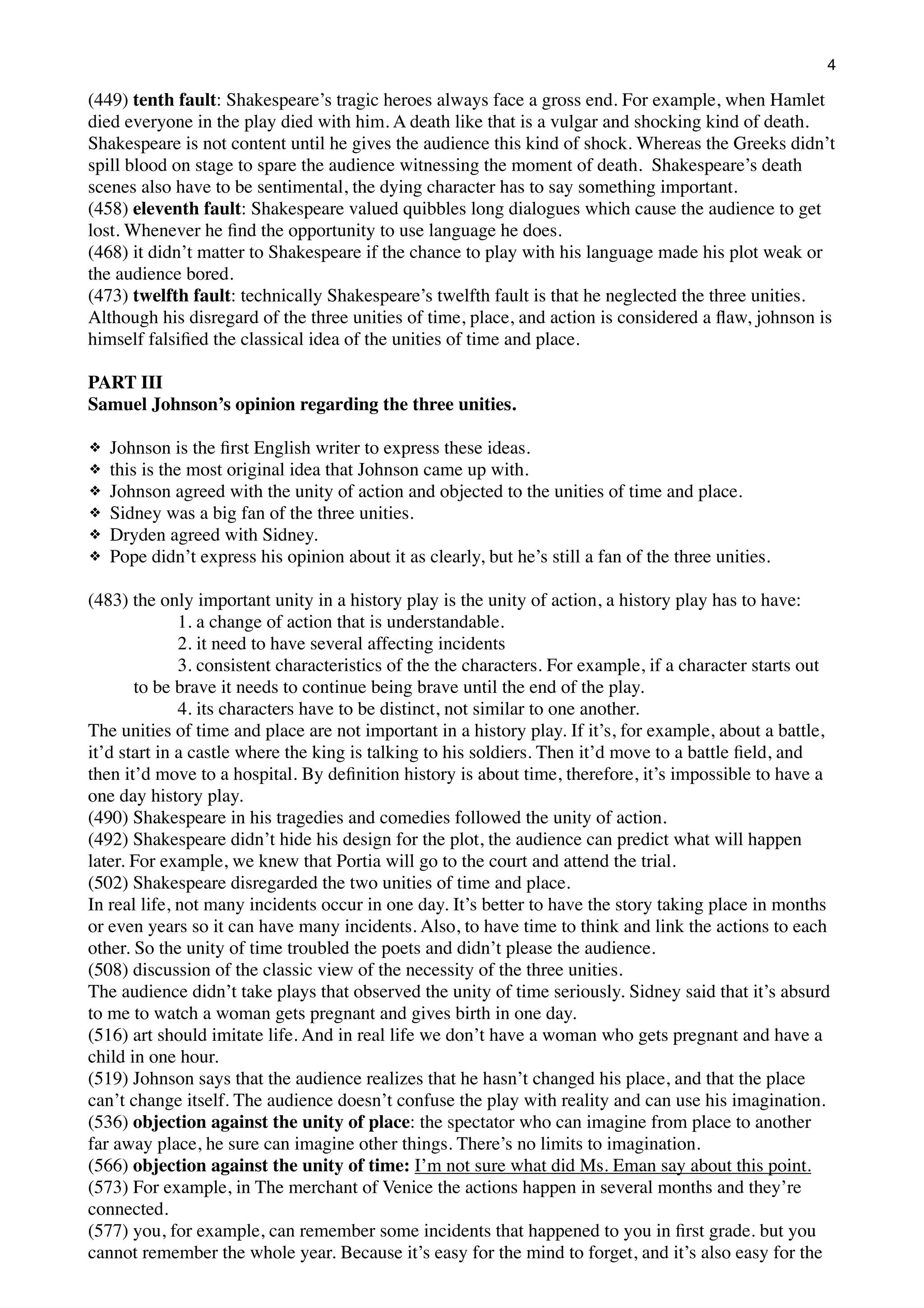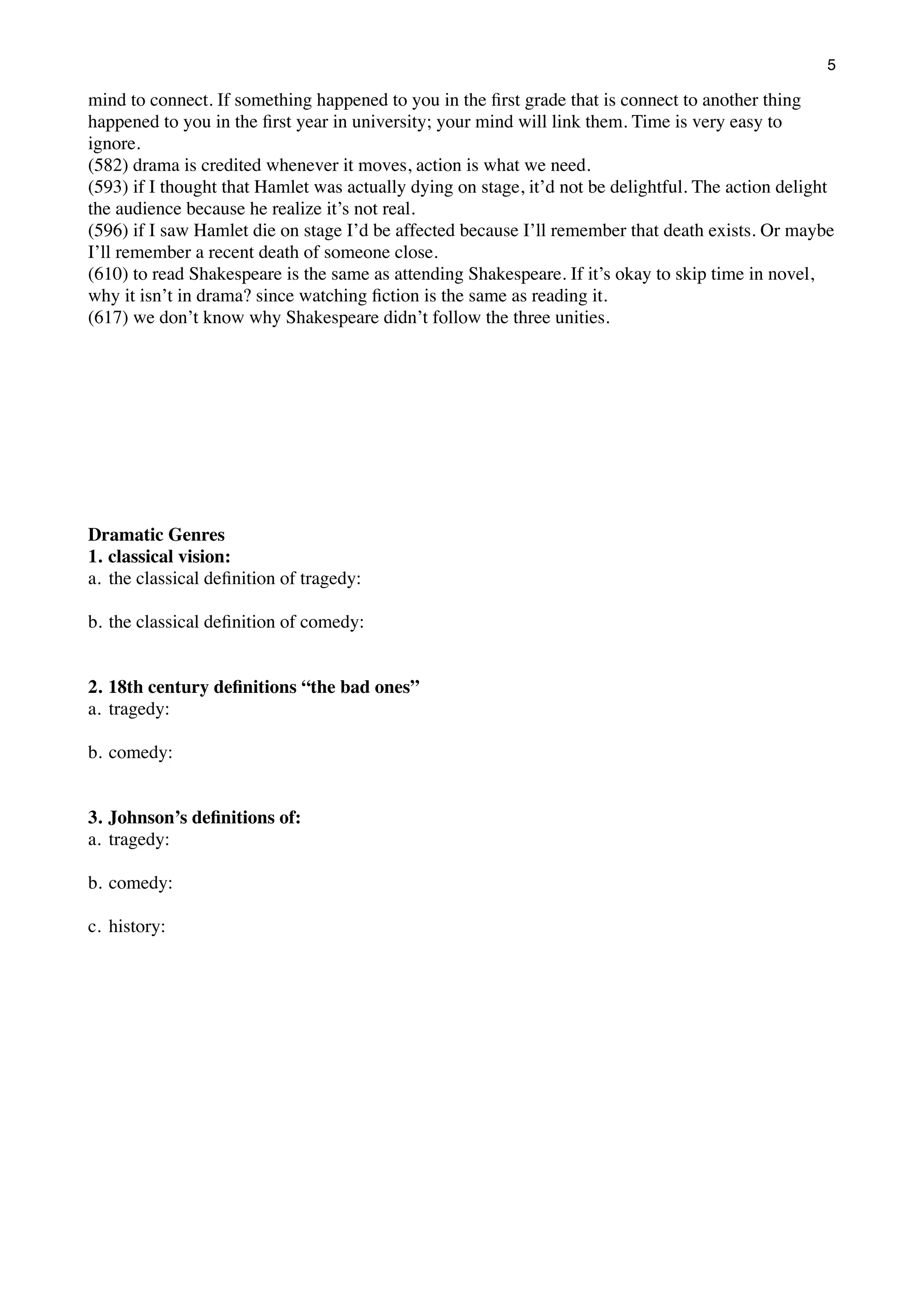Samuel Johnson wrote a preface to Shakespeare analyzing his works. He praised Shakespeare's ability to create universally understood characters despite differences in place and time. However, he also acknowledged Shakespeare's faults, such as neglecting moral lessons, weak plots, and stretching out stories too long. While Shakespeare disregarded the classical unities of time and place in drama, Johnson argued the unity of action was most important, and praised how Shakespeare's plots followed from consistent characters and affecting incidents.
